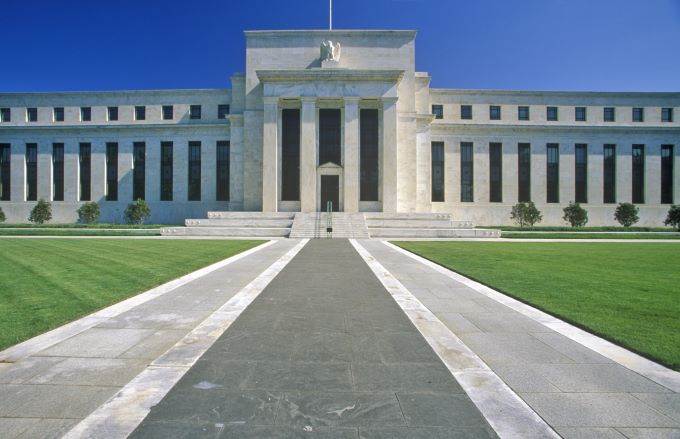 In an unprecedented step, global central banks, led by the US Federal Reserve, decided on Sunday to provide monetary incentives to the global economy by enhancing liquidity amid the collapse of global financial markets due to the spread of the Coronavirus, which raises fears of a global recession. The US Federal Reserve, The Bank of Canada, the Bank of England, the Bank of Japan, the European Central Bank and the Swiss National Bank have announced coordinated actions to enhance liquidity provision in financial markets.
In an unprecedented step, global central banks, led by the US Federal Reserve, decided on Sunday to provide monetary incentives to the global economy by enhancing liquidity amid the collapse of global financial markets due to the spread of the Coronavirus, which raises fears of a global recession. The US Federal Reserve, The Bank of Canada, the Bank of England, the Bank of Japan, the European Central Bank and the Swiss National Bank have announced coordinated actions to enhance liquidity provision in financial markets.
These central banks agreed to cut interest rates for their currencies, to provide liquidity to revive the economy, and in a move that surprised the markets, the US Federal Reserve lowered the interest rates to almost zero yesterday, moreover, the Federal Reserve announced that it would increase its holdings of treasury bonds with at least $500 billion and possession of mortgage-backed securities by at least $200 billion, to start a new quantitative easing program with a total value of $700 billion, after the outbreak of the Coronavirus affected societies and disrupted economic activity.
On Monday, the New Zealand central bank cut interest rates by 75 basis points to 0.25 percent, in an unprecedented move. The bank said that the rate will remain at this level for at least 12 months, and the New Zealand Central Bank added that the negative economic effects of the Coronavirus will continue to rise, which calls for more monetary stimulus.
Elsewhere, the Reserve Bank of Australia said it is ready to buy government bonds and is due to unveil further stimulus measures next Thursday, as Governor Philip Lowe said the bank is ready to buy Australian government bonds in the secondary market to support the smooth performance of that market, and to provide liquidity to financial markets. Lowe said that the central bank will also carry out one-and-three-month repurchases in daily market operations until further notice, in addition, the Reserve Bank of Australia will make long-term repurchases of six months or longer per week, at least, as long as the market conditions require it.
In a related context, the Council of Financial Regulators said that the Australian financial system is flexible and is in a good position to deal with the effects of the Coronavirus outbreak, and there are large financial reserves available for withdrawal if necessary to support the economy, and the Australian Central Bank reportedly added $5.9 billion in the banking system to ensure adequate credit to companies and families.
The Bank of Japan unveiled an additional package of quantitative easing to deal with the slowdown in growth resulting from the outbreak of the Coronavirus.
The Bank of Japan strengthened its monetary policy on Monday, as the bank decided to take additional facilitative steps, by conducting various operations including the purchase of Japanese government bonds and the supply of funds in US dollars. The bank also introduced a new process to facilitate financing for Japanese companies, in addition to purchasing Exchange Traded Funds and Japanese real estate investment funds.
China pumps $ 14.3 billion to the banking system
Turning to the Chinese border, the Chinese central bank added more money to the banking system but kept the cost of borrowing unchanged after the US Federal Reserve unexpectedly cut interest rates by 100 basis points yesterday, and it is worth noting that official data have shown that Industrial production and retail sales fell more than expected at the beginning of the year after the factories closed and families curbed spending after the spread of the Coronavirus. The People's Bank of China pumped 100 billion RMB or $14.3 billion into the financial system by facilitating medium-term lending for a year, but the bank kept the interest rate at 3.15 percent as is, and reduced last week the reserve requirement ratio by 50 basis points for eligible banks, to support the economy that was affected by the outbreak, in the second reduction in the current year. In a related context, the National Bureau of Statistics said Monday that industrial production decreased by 13.5 percent in the period from January to February after rising by 6.9 percent in December, and analysts expected a moderate decrease of 3 percent, as well. Retail sales recorded a sharp decline of 20.5 percent, which is higher than expected as it was expected to decrease only 4 percent, and investment in fixed assets decreased by 24.5 percent compared to a rise of 5.4 percent in the period from January to December 2019. It was projected to decline by 2 percent. In addition to the jobs data, which showed the unemployment rate increased to 6.2%, and finally, another report showed that home sales decreased by 34.7 percent annually in the first two months of 2020. Real estate investment decreased by 16.3 percent after rising by 9.9 percent in January 2019.
